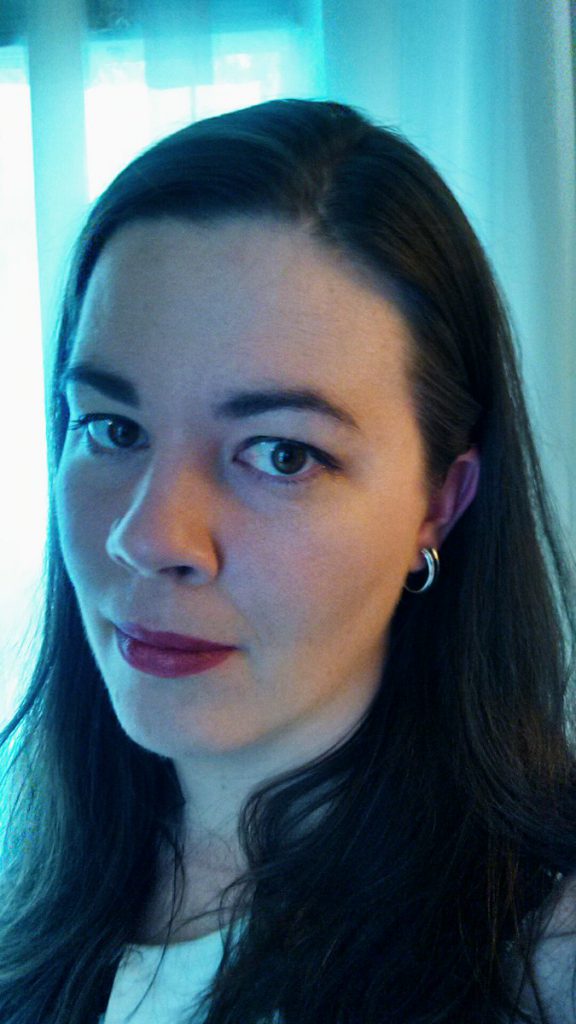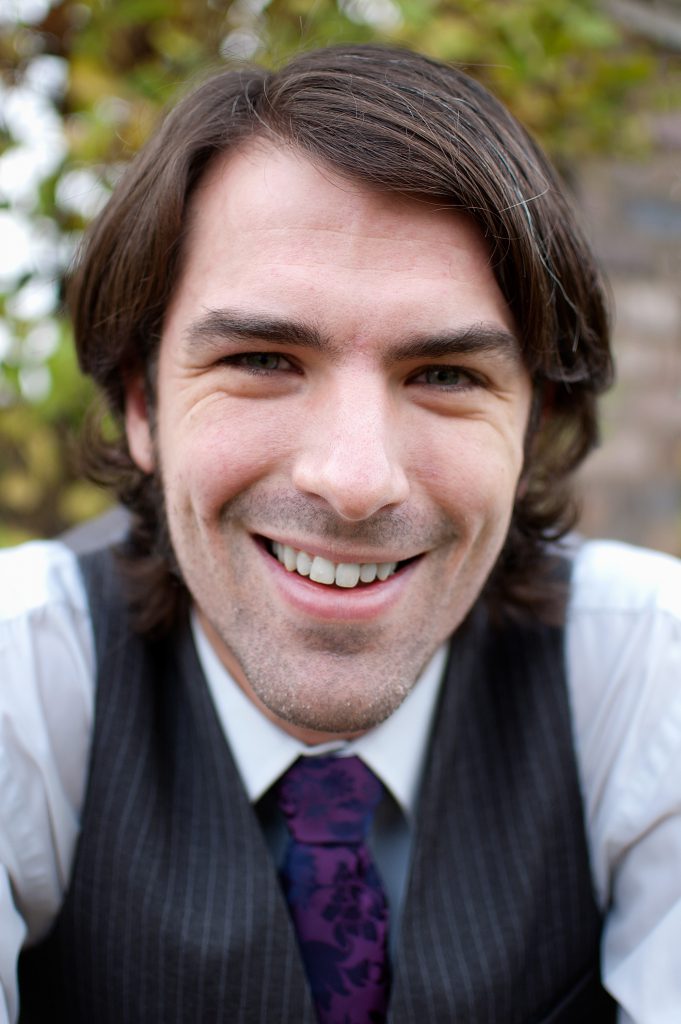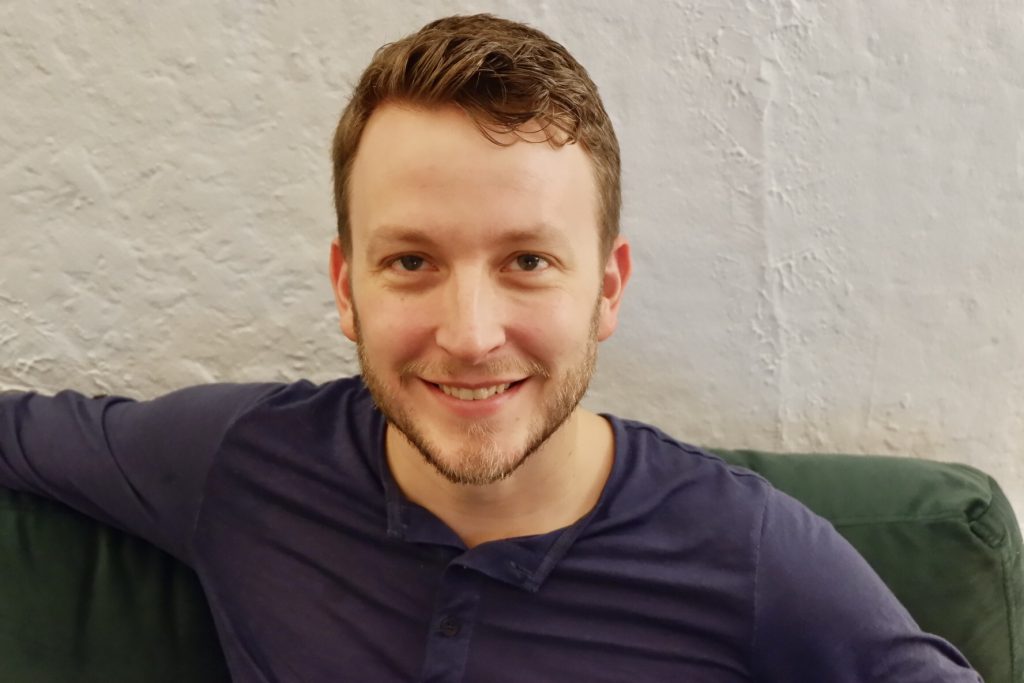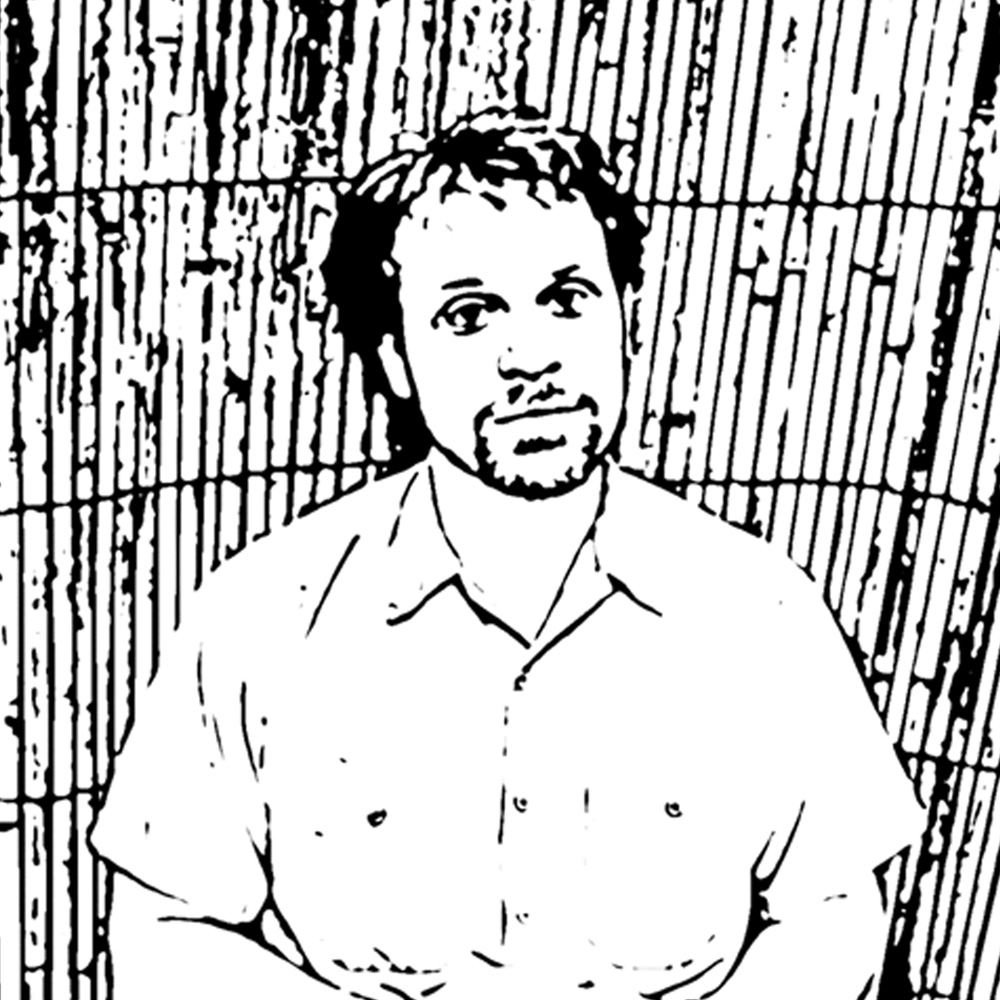edited by Ziv Wities
Noémi tried to focus on the mermaids and ignore the floor. She lay in the middle of her living room, upon a nest of laundry bags and blankets, hoping for just a couple hours of sleep before she had to open the shop tomorrow. The new pain pills did as little as the old ones, and so she pulled the covers over herself at sundown and tried to use the internet as medication.
Chronic pain and Mermaid Tumblr. It was a normal night in her world. Videos and GIFs of those fish-tailed people swimming, their fins swirling through water currents, sometimes lulled Noémi into distraction. She needed those distractions tonight.
Her phone buzzed with a text from Tariq. He was working late.
TARIQ
u want a bed, but would u sleep on a sofa?
NOEMI
I’d sell a kidney for a sofa.
TARIQ
what if some1 died on it? but u keep ur kidneys
Okay, it was a weird offer. But was this that much weirder than the selkies down the hall who kept offering her herbal remedies? You knew you were pathetic when selkies pitied you.
You also knew you were pathetic when your roommate offered you dead people’s furniture. But her mother had worked with estate auctions, so Noémi had grown up with plenty of grim hand-me-downs. A bed was out of her price range. She knew what her mother would’ve said.
NOEMI
Is it clean?
TARIQ
clean as a disney movie
She sat up and her entire spinal column rioted. She felt vertebrae kicking over trash cans and lighting cars ablaze in her lower back.
NOEMI
Dying on a sofa would be the highlight of my year.
“Good!” Tariq yelled from the hall outside their apartment. She didn’t register it was him until their door swung open and he shimmied in butt-first, dragging a bulky sofa behind him. “Because I am not carrying this back to Apartment 3A.”
It was sand-colored with brown freckles, a fashion risk even for a freebie. At least it wasn’t splattered in gore.
She meant to run a hand over its arm rest, but immediately found herself sitting on it. Sinking into the cushions felt like a hug from a friendly giant. The honking and crying and thrumming of the city outside their apartment seemed to calm down.
Forget sleeping on the floor; she never wanted to touch the floor again.
“Hey,” she said, “try sitting on this.”
Tariq asked, “Did you take your meds tonight?”
She asked, “Someone died on this?”
She couldn’t hear his answer over the sensation of touch not hurting for the first time in hours. The leather was so warm, so welcoming, just like skin.
*
Tariq shook Noémi’s foot, and she pulled her blanket over her face. She mumbled, “I don’t need dinner. I’m turning into a human ramen.”
He said, “It’s eleven.”
Sunlight blurred her vision and she rubbed the grime from her eyes. “Eleven? Then how is it light out?”
“They invented this thing called ‘A.M.’ You slept through your alarm.”
“No…” She didn’t know what she was denying. She stretched out on the sofa. For the first time in weeks, her back didn’t feel like it was on fire. The pain had calmed to a dull throb—an annoying pain rather than an intense one. If she’d overslept, her body obviously needed it. She almost felt more tired than yesterday.
Tariq pried the fleece from her hands. “I made you a couple waffles. Please, please eat them.”
Her appetite was a magician; it had one hell of a disappearing act. Pain made it easy for Noémi to skip meals. Still, with bleary eyes, she read the concern in her friend’s face. It was the same concern she’d felt on so many nights when she helped him through his anxiety attacks.
She smiled up at him and said, “You know something? I slept.”
He offered her a hand up. “That’s pretty awesome. We should party tonight.”
*
There was no party that night. The food truck broke down and Tariq texted that he was stuck helping his uncle fix it.
Noémi felt for him and was relieved at the same time; she could barely move her fingers by the end of her shift at the pet store. Gryphon chicks were adorable, but insisted on being hand-fed, and the basilisks had broken out of their blackout cage and were looking at customers again.
The pain ground her brains into powder. What people didn’t understand about chronic pain was that it wasn’t about your legs going weak – it was about getting mentally exhausted managing the assaults. All day, she fantasized about sitting down.
Once home, she barely opened her string cheese before plopping onto her freckled sofa. Lying on it was like her entire body was biting into a marshmallow. This she had an appetite for. The cushions slid apart, enveloping her in the leather, like it wanted to swallow her.
In her dreams, it did.
*
Her phone vibrated on her chest. It was work. It was also noon, and she didn’t know what day.
She answered, and picked her string cheese off the carpet. She must have sleep-punted it.
She said, “Hey Lili. Sorry. I must have—”
Lili cut her off, “I think the mogwai are picking the locks on all the cages after hours.”
Lili was a succubus and normally had everything together. If she was as nervous as she sounded, then this was dire.
Noémi forced herself to stand free of the sofa’s wonderful grip and walked to the center of the room to wake up. Her spine popped and she shuddered. She asked, “Did they eat after midnight?”
“Not this time, but I found one molesting the breakroom pantry.”
Noémi was sitting on the edge of the sofa. She didn’t remember sitting down. “I found the nicest furniture. You’ve got to come over and try it.”
“You know that when I say ‘the monsters are picking their locks,’ I mean ‘get your butt over here immediately,’ right?”
Noémi said, “Got it.”
She hung up, and had the funny desire to kiss the sofa goodbye. And why not? Nobody was watching.
She leaned in and smooched a cushion. It smelled like a perfume that Noémi had only ever encountered in dreams.
Then it was 6:24 PM. Her phone had eight messages.
*
She thought the knocking was Tariq having lost his key, but it was Lili at the door. All six feet and two inches of her. Lili’s normally lustrous golden hair frizzled out like copper wire. She had gory paw prints on her skirt which hopefully weren’t her own blood.
Noémi said, “Oh my gosh, Lili, never in a million years…”
Then Lili was inside her apartment, stooping to go nose to nose with her. She thought the succubus was going to bite her head off. “Where were you?”
“I’ve almost never missed work like that, and it won’t happen again, I promise.”
“I thought your new meds killed you or something. Your landlord said you wouldn’t answer the door.”
Noémi bit the inside of her cheek. “I may have slept through her knocking.”
Lili gripped onto Noémi’s shoulders. “So you’re okay?”
“I’m awesome. You know I wanted a bed, but we found a sofa and it’s the best thing in the world. My body must still be catching up on sleep.”
Noémi backed into the apartment. The sofa was tucked into the far wall of their combo kitchen/living room. She fought the urge to curl up on it right now.
Lili looked like she’d bitten into an extremely ripe lime. “When did you invite her?”
“Her? Are you gendering my furniture?”
Lili pointed a sangria red fingernail at the sofa. “That’s not furniture. That’s a succubus.”
Noémi tilted her head. Giving it a few seconds didn’t make it make any more sense. “I know you’re the expert, but I’m pretty sure succubi don’t have armrests.”
“Come on. You know my mom is a used bookstore, right?”
“I thought she owned a used bookstore.”
“The sex economy sucks. With all the hook-up apps and free porn out there, a succubus starves. My mom turned into a bookstore so people would take bits of her home and hold them in bed. It’s why I work at the pet store and cuddle the hell hound puppies before we open.”
Noémi asked, “Is that why they never bite you?”
“What do you think? Everybody else gets puppy bites, except me. I get fuzzy, affectionate joy-energy. Gets me through the day, like a cruelty-free smoothie.” Lili blew a frizzy strand of gold from her face. “But this sofa has devolved really far into this form. I know succubi that went out like her—she’s just a pit of hunger shaped to look enticing. No mind. Just murder. Where’d you even find her?”
“It was a freebie. I mean, maybe somebody died while sleeping on it, but that doesn’t mean anything.”
“And you’re sleeping all the time now? Always on it? She’s totally eating you.”
“My sofa is not a murderer.”
Tariq walked in through the front door, and they both looked up at him. He said, “Hey ladies. Breaking it in?”
That’s when Noémi realized both she and Lili were sitting on the sofa.
They shrieked, and ran from the apartment, dragging Tariq with them.
*
Noémi and Tariq slept in the stairwell that night, each careful to jab each other in the ribs if they started inching back towards the apartment. Lili tore across the city in search of anyone who doubled as a furniture mover and an exorcist.
*
Noémi didn’t sleep a minute for the rest of the week. The pain that had dwindled during her affair with the sofa now returned with the cruelty of a direct-to-video sequel. For most of the day, she could barely think. Through the nights, crashing in the back room of the monster pet store, she could barely sleep. Everything was a fog of social auto-pilot.
She had to bribe Lili to come back, promising to scrub the hell hound cages. The puppies had eaten a mogwai and their bowel movements had turned into some horrible form of post-modern art.
Lili arrived at the apartment wearing a bright yellow hazmat suit. Tariq donned six pairs of plastic gloves before deigning to touch the succubus-turned-sofa. He and Lili had to do the lifting.
Noémi could scarcely stand up straight, let alone carry furniture. Instead she stuffed the remaining sofa cushions into a trash bag. She hesitated over the last one, on which she’d laid her head for the easiest nights of her year. She held it, thinking about how people got lost.
*
When Noémi came into the alley, Lili was dousing the sofa with equal parts holy water and kerosene.
Tariq reached for the garbage bag, but Noémi clutched it to her chest. Noémi asked, “Do you really think the sofa is that bad?”
“Yes,” Tariq said. “Pure evil. She haunted our apartment without paying rent.”
“She was probably lonely. She couldn’t find a companion she could keep. But now she’s found a new identity, and someone who appreciated her…”
“She was eating you.”
“Could we ask her to, you know, stop eating me?”
Lili emptied the last liquids over the sofa and said, “There’s no consciousness left in her. She’s just hungry furniture now. And you’re just loose change about to get stuck between her cushions.”
“I didn’t feel like loose change. I felt different. Everybody gives you magnetic bracelets, and pot brownies, and tells you to sleep with your legs over your head. It all did jack for me. But the sofa was helping.”
Muttering something in Latin, Lili tossed a lighter and torched the sofa. The backrest went up first, in a brilliant blue flame with silver smoke that climbed the alley’s brick walls. They needed to make this fast or their landlord would catch them in the act.
Tariq said, “I’m not going to tell you how to feel.” He stretched out his hand, offering to take the bag. “You want me to do the honors? Technically I was the one who brought her home and started all this.”
“Nah,” Noémi said, avoiding eye contact and tossing the bag of cushions onto the pyre. It went up in even more lustrous smoke, so thin it could’ve been vapor. It smelled like tears. “Let’s get out of here.”
Tariq said, “Look, take my bed until we find you something, okay?”
Noémi put a fist over her mouth. “Are you sure?”
“The surest. I’ve got a lead on some money.”
She hugged her friend for a fierce moment in time.
Then they ran before someone called the cops.
*
Noémi knew she’d woken at 5:32 because that’s when the text came in. It’d taken her forever to wind down, but she’d guess she’d slept four and a half hours. That was a record since the bonfire, and this was her first night trying out the secret weapon.
The incoming text read:
TARIQ
got a pair!!!!
Limited edition sneakers. You downloaded an app that pinged you at a random time and if your GPS reported you were in a certain radius of a certain boutique, you got a crack at one pair of obscenely expensive shoes. Tariq had basically haunted that neighborhood for days waiting for his phone to vibrate. With the magic of economics, he could flip the shoes to a trust fund kid and turn them into a new bed.
Or he could turn it into rent.
Or, as Noémi expected, he could sink all of those dollars into his uncle’s food truck. It was family and livelihood. And you couldn’t carry a treasure chest to the surface when you were fighting to tread water.
She texted him back:
NOEMI
You woke me up. Jerk.
He’d get a good laugh, never believing she’d really slept this late. She wouldn’t have believed it either, if she only had his bed.
She scooted to the far edge of the mattress, leaving her pillow behind, letting her feet scuff across the carpet. Impact sent sharp tingles up her calves, sparks of pain where yesterday there had been an inferno. When she stretched, the sparks sprang up at her spine, and then down her arms.
These were aches. They were not agonies. They were things she could live with, if it didn’t mean getting swallowed up by a spell from the other side of the bed.
One minute passed. She timed it on her phone.
Two minutes.
Three minutes.
The oblong lump lay in its pillowcase on the other side of the bed. Sofa cushions weren’t supposed to be pillows, although this one was changing Noémi’s mind. Neither Lili nor Tariq had noticed that the bonfire had been one cushion short.
Noémi asked, “And you’re not trying to kill me?”
She leaned in and hugged the cushion to her chest, in the way she liked to be held. It squished so perfectly that she wondered if there was a metric scale for comfort. She was able to put it down easily; no succubus mind control was at work. If this thing was self-aware, it wasn’t manipulating her anymore.
“A lower dosage of you is helping,” she said. “This way we can stay together. You won’t hurt me. You’ll eat me, but on my terms.”
The succubus-turned-sofa-turned-pillow said nothing in return. It was as good as inanimate. Lili was probably right that it was mindless, save its hunger. But it had a home now, and someone who consented to having her pain eaten. Noémi hoped her pain was delicious.
Idly, she petted the pillow’s seams, wondering when Tariq would figure it all out. They needed to talk before his bedroom turned host to a witch trial.
Two more texts came in: one of Tariq kissing a shoebox, and a second asking about her.
TARIQ
u get any z’s?
NOEMI
Only because I had company.
TARIQ
lol you better buy me new sheets
A moment later, he texted again.
TARIQ
some1 i shld meet?
She hesitated with her thumbs on the screen, creating an accidental string of N’s.
Lying to him now would be a mistake. God, she’d be dead without her friends.
NOEMI
Yeah. I’ll introduce you tonight.
He texted another picture of himself holding the shoebox up like it was the Infinity Gauntlet. She snorted so hard her eyes crossed, then reclined against the succubus pillow. So this was what relief felt like.
© 2021 by John Wiswell
2700 words
Author’s Note: I’ve lived with chronic pain for more than two thirds of my life, but until a couple years ago, I never wrote fiction about it. After a series of sleepless and listless nights, I fantasized about the Devil’s bargains I would strike to be comfortable for just a little while. But there are more interesting things out there to bargain with than the Devil, now aren’t there? Like, perhaps, a hungry hungry sofa. But it couldn’t be a story about isolation and disabled pain. It had to have the social elements. Here I tried to capture a little about the human support systems that keep people like me going, and that reflect that we matter. A painful world isn’t necessarily coldhearted. If it gets better, it does so because we look after each other.
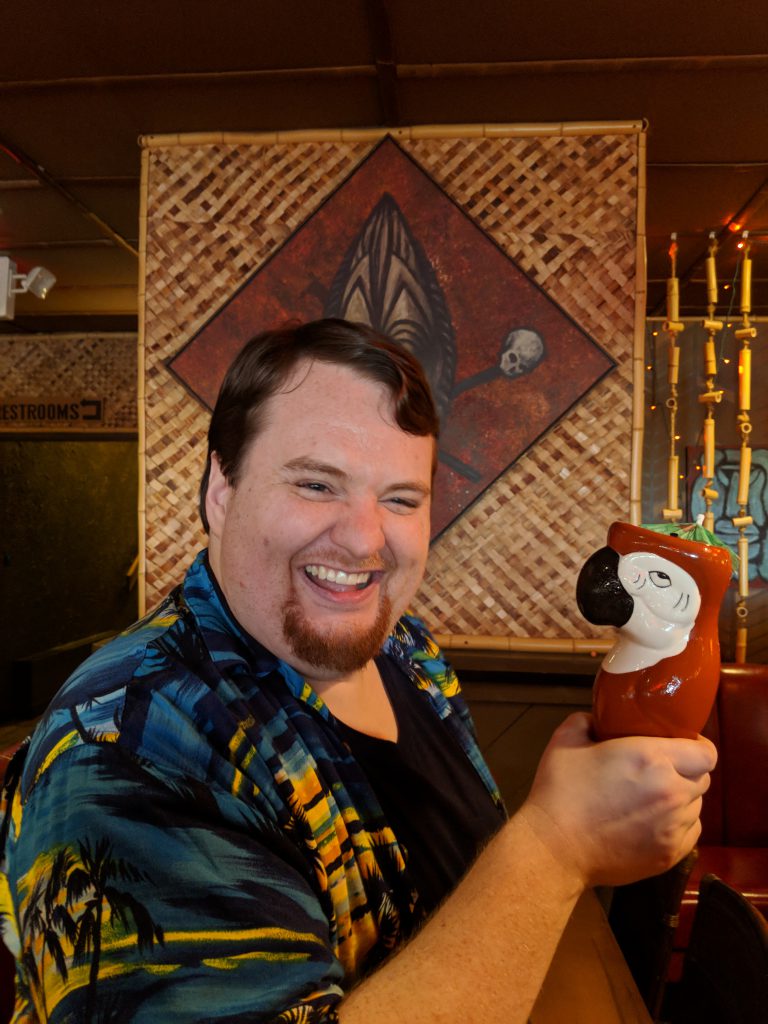
John (@Wiswell) is a disabled writer who lives where New York keeps all of its trees. This is his third story at Diabolical Plots, following “Tank!” and “Open House on Haunted Hill.” His work has also appeared in Uncanny Magazine, Nature Futures, and Nightmare Magazine. He has made it through multiple decades of chronic pain, and wants you to know you aren’t alone.
John Wiswell’s previous stories here are “Tank!” in June 2018 and “Open House on Haunted Hill” in June 2020. If you enjoyed the story you might also want to visit our Support Page, or read the other story offerings.

